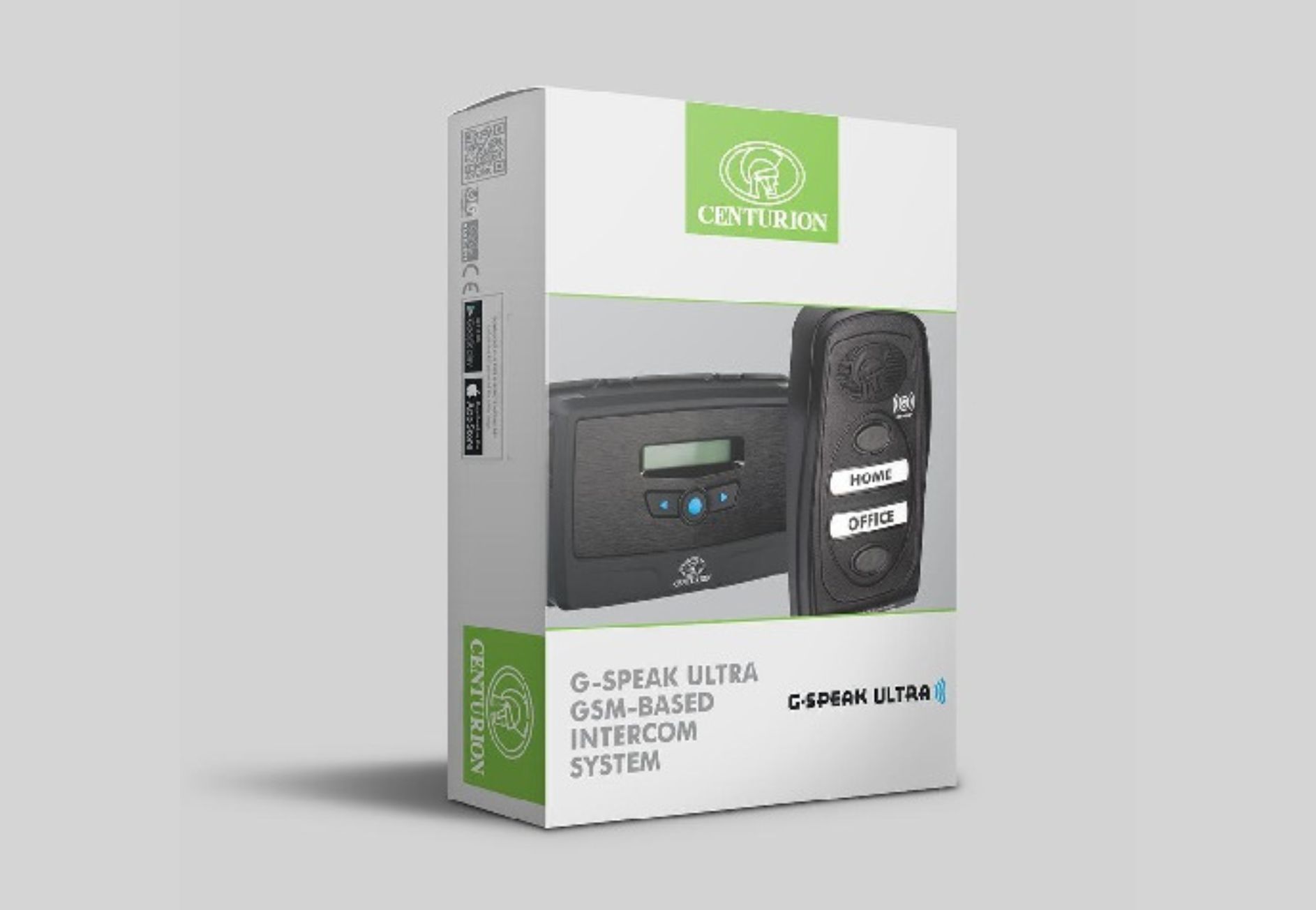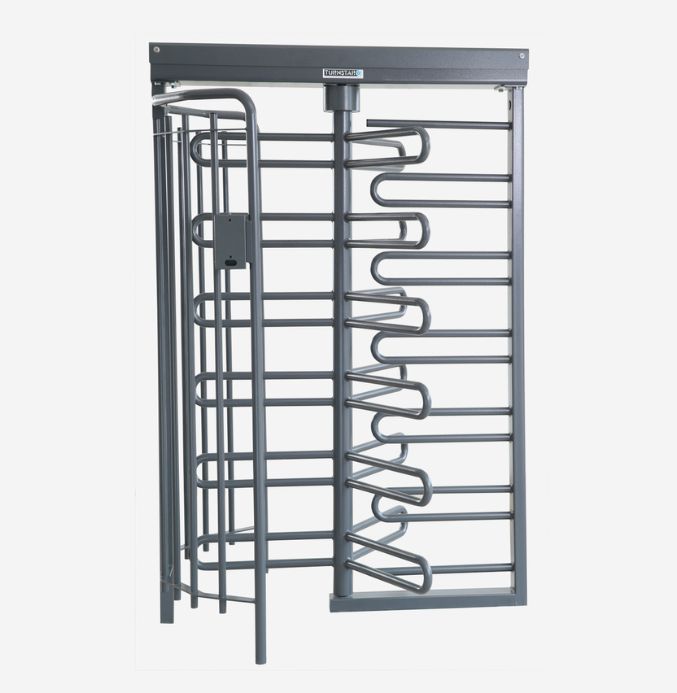
Introduction to Automatic Gates
What Are Automatic Gates?
Automatic gates are powered gate systems that open and close using electric motors, sensors, or remote control devices. These gates have become increasingly popular in Kenyan residential and commercial setups due to their unmatched security, ease of use, and aesthetic versatility. Unlike traditional gates that require manual operation, automatic gates use various technologies such as remote controls, biometric systems, intercoms, and keypad entries to facilitate seamless access control.
They come in various designs, tailored for specific needs—whether for home driveways, apartment complexes, office premises, or industrial warehouses. With increasing urbanization and security concerns, these gates are not just a luxury but a practical necessity.
In Kenya, automatic gates are found in gated communities, banks, schools, government facilities, and even in private homes in suburbs like Karen, Runda, and Lavington. The systems installed are often adaptable to local power issues, with options for solar or backup battery integration. As technology advances and costs drop, they’re becoming more accessible to a broader segment of the population.
Why More Kenyans Are Choosing Automatic Gates
Kenyans are quickly embracing automatic gates, not just for convenience, but for the layered security and modern appeal they offer. In a country where urban security threats are rising, automatic gates are now seen as a smart investment rather than a luxury. They deter intruders, control access to properties, and create a psychological sense of safety.
Moreover, Kenyan homeowners are leaning toward automated systems because they require minimal manual intervention—an attractive feature for the elderly or busy professionals. Additionally, property developers are increasingly incorporating them into their projects as a selling point. Beyond the urban centers, even rural homesteads are adopting solar-powered automatic gates, combining traditional living with modern technology.
The trend is also fueled by the availability of locally made gates, competitive pricing, and rising awareness about smart home technologies. And with the ever-improving mobile internet connectivity, more Kenyans can now operate their gates remotely through smartphone apps. This is not just a convenience—it’s an upgrade to a more secure and intelligent lifestyle.
Benefits of Installing Automatic Gates
Enhanced Security
Security is one of the top reasons why automatic gates are surging in popularity across Kenya. Whether you live in Nairobi, Mombasa, Nakuru, or even upcountry, theft and intrusion are constant concerns. Automatic gates act as the first line of defense, keeping out unwanted visitors and alerting you to movement or attempted access.
Advanced models feature surveillance integrations such as CCTV, infrared sensors, and alarm systems, giving homeowners and businesses full control over who enters and exits the premises. They can also be programmed to automatically lock, thus reducing the chances of leaving your property exposed due to human error.
In urban estates and commercial centers, access control is crucial. Automatic gates offer biometric verification or card-based entry systems that only allow authorized personnel in. This is vital for schools, hospitals, and business parks, where managing human traffic is essential.
The mere presence of a gate that opens only after digital verification is a major deterrent to petty criminals and intruders. In some cases, this deterrent effect alone significantly reduces the chances of a security breach. For parents with young children, automatic gates also offer peace of mind—knowing that your child can’t wander out easily or be accessed by strangers.
Convenience and Accessibility
Imagine arriving home in the rain or at night and not having to leave your car just to open the gate. That’s the magic of an automatic gate system—it offers unmatched convenience. Especially in Kenya’s busy towns and traffic-laden suburbs, getting out of your car to open a gate manually is not only tiring but potentially unsafe.
Remote-controlled gates allow for seamless entry and exit with just the press of a button or tap on your phone. This is particularly useful for older adults, people with disabilities, and families with children. Some gate systems even include voice-enabled access or integration with smart home ecosystems like Google Assistant or Alexa.
Besides, for commercial facilities like warehouses, apartment buildings, or office complexes, these gates save time and labor. No need to hire gatekeepers to stand by the gate all day—automated systems handle it efficiently.
For frequent deliveries or staff entries, programmable entry schedules and temporary access codes can be created, eliminating the need for constant supervision. This not only makes life easier but enhances operational efficiency for businesses.
Aesthetic Appeal and Property Value
Automatic gates do more than provide safety and convenience—they add flair and value to your property. A well-designed automatic gate instantly enhances curb appeal. Whether it’s a sliding gate with artistic ironwork or a modern minimalist swing gate with sleek aluminum lines, the right gate can make a statement.
In Kenya’s premium suburbs, developers know this all too well. Homes fitted with automated gates not only fetch better prices but also attract higher-end buyers or tenants. It shows that the property is modern, secure, and well-maintained.
Customizable designs mean homeowners can select gates that complement their architectural style—be it rustic, colonial, contemporary, or African-themed. Some even incorporate logos, family emblems, or motifs that give a personalized touch.
Furthermore, the investment in an automatic gate often reflects a homeowner’s attention to detail and care for safety and aesthetics, which can positively influence valuation during a property sale or rental agreement.
Types of Automatic Gates Available in Kenya
Swing Gates
Swing gates are among the most popular options for residential properties in Kenya. They open inward or outward, much like a traditional door, and can be single or double-leafed depending on the size of the entrance. They’re ideal for properties with enough front yard space since they need room to swing open.
One of the biggest appeals of swing gates is their simplicity and elegance. They blend well with different home styles and can be customized with materials like wrought iron, galvanized steel, or treated hardwood.
Swing gates are easier and cheaper to install compared to sliding gates, making them a go-to choice for homeowners on a budget. They work well with automatic motors, and depending on your needs, you can opt for above-ground or underground motors.
In terms of maintenance, swing gates are relatively low-hassle, especially when fitted correctly. However, they’re not ideal for sloped driveways or areas with limited space, as they require a flat plane to operate efficiently. Anti-crush safety features and adjustable hinges are recommended to avoid wear and tear over time.
Sliding Gates
Sliding gates are another top choice among Kenyans, especially for commercial spaces and homes with limited driveway space. Unlike swing gates, sliding gates move horizontally along a track, making them ideal for areas where there isn’t enough space for a gate to swing open. This design is perfect for narrow driveways, sloped entrances, or properties with busy street frontage.
One of the most appealing aspects of sliding gates is their compact functionality. They save space while offering robust security. Most sliding gates in Kenya are made from steel or aluminum and can be automated using either rack and pinion mechanisms or cantilever systems that don’t require ground tracks—great for regions with dusty or muddy conditions.
Sliding gates are generally more secure than swing gates because they are harder to force open. With strong lateral motion motors, they are capable of supporting very heavy gates, making them a favorite for factories, schools, and apartment blocks where large vehicle access is common.
Maintenance is relatively straightforward, but it’s crucial to keep the track clear of debris and lubricated. When properly installed and maintained, a sliding gate offers many years of dependable service, even under heavy use.
Additionally, sliding gates are often combined with intercoms, remote systems, or keypad access to give full control over entry and exit, offering both convenience and peace of mind to users.
Barrier Gates
Barrier gates, commonly known as boom gates, are typically seen in parking lots, toll booths, and gated community entrances across Kenya. These gates feature a long arm that rises vertically to allow passage and then lowers to block entry. Though not as visually grand as swing or sliding gates, they are extremely functional for areas with high traffic flow.
These gates are especially useful for controlling vehicular access and are often paired with ticketing or access card systems. In Nairobi, for example, many shopping malls and business parks use barrier gates to manage incoming and outgoing traffic. Some residential estates have also adopted barrier gates at the main entrance to restrict and log vehicle movement.
One major benefit of barrier gates is their speed. They open and close quickly, which is essential for managing traffic during peak hours. They also consume less space since they operate vertically and don’t require side or swing clearance.
Many modern barrier gates in Kenya now feature LED lighting, automatic number plate recognition (ANPR) systems, and solar-powered options, making them efficient and environmentally friendly. However, they are best suited for vehicular control rather than pedestrian security.
Key Features to Consider When Buying an Automatic Gate
Gate Material (Steel, Aluminum, Wrought Iron)
Choosing the right material is crucial when buying an automatic gate in Kenya. The material not only affects the gate’s strength and durability but also its aesthetic appeal and maintenance requirements.
-
Steel: This is the most common material used for automatic gates in Kenya. It is strong, durable, and offers great security. Powder-coated or galvanized steel gates are rust-resistant and ideal for both urban and coastal areas. They are heavier, which means they need powerful motors.
-
Aluminum: Lighter than steel, aluminum gates are rust-proof and require less maintenance. They’re perfect for modern homes looking for sleek, stylish designs. However, they may not be as strong as steel or iron, so they’re better suited for residential use rather than heavy-duty applications.
-
Wrought Iron: Known for its elegance and classic appeal, wrought iron gates are commonly used in luxury properties. They can be intricately designed and offer high security. However, they do require regular maintenance to prevent rust, especially in humid or rainy regions like Kisumu or Mombasa.
When selecting the material, consider your property’s location, your security needs, and your budget. Also, make sure the motor system you choose is compatible with the weight and structure of the gate material.
Motor Type and Power Capacity
The heart of any automatic gate is its motor, and choosing the right motor type is crucial for optimal performance. In Kenya, where power outages and voltage fluctuations can occur frequently, investing in a robust and reliable motor system is essential.
There are mainly two types of motors used in automatic gates:
-
Electromechanical Motors: These are the most common motors for residential gates. They use gears and electric power to open and close gates. They’re durable, relatively affordable, and easy to maintain. These motors are ideal for homes and light commercial use.
-
Hydraulic Motors: These are more powerful and better suited for heavy-duty applications like industrial gates or locations with high traffic. Hydraulic systems can handle heavy gates smoothly and are less affected by environmental conditions such as dust or rain, making them ideal for dusty towns like Eldoret or semi-arid zones.
Motor power capacity also varies depending on gate size, weight, and usage frequency. A lightweight aluminum swing gate in a suburban home will require a less powerful motor than a steel sliding gate in an industrial complex.
Always check the gate’s weight capacity compatibility with the motor and ensure you get a model that includes thermal protection to avoid overheating—especially important in hot Kenyan climates.
Remote Control and Automation System
An automatic gate wouldn’t be complete without its control system, and in Kenya, where security and convenience go hand-in-hand, remote control systems are a major selling point. The standard is a handheld remote, but many systems now include:
-
Keypad Access: Perfect for commercial or apartment setups where multiple users need access. Codes can be changed regularly for added security.
-
Smartphone Integration: With mobile apps, you can now control your gate from anywhere—whether you’re at the office in Westlands or on holiday at the coast. Many modern gates come with GSM-based systems that allow gate operation via SMS or a mobile app.
-
Biometric and RFID Readers: These are often installed in high-security zones such as embassies or data centers. They add another layer of protection and are becoming more common in high-end Kenyan residential developments.
-
Intercom Systems: These let you communicate with visitors before granting access, a popular feature for large homes and office buildings.
The more integrated your system is, the better. And with Kenya’s increasing embrace of smart tech, investing in a gate system that’s future-proofed for upgrades is a wise move.
Backup Power Options
Power instability is a real concern in many parts of Kenya. Nairobi, Kisii, and even Mombasa frequently experience power outages. That’s why backup power is a key feature to consider when buying an automatic gate.
-
Battery Backup Systems: Most modern gate motors come with in-built or external battery backup options. These can keep your gate operational for several cycles (opening and closing) even during a blackout.
-
Solar Power: Kenya’s sunny climate makes solar-powered gates a smart choice. Solar panels can be installed to keep the gate charged throughout the day, reducing electricity costs and increasing reliability. They are especially ideal for rural or off-grid areas.
-
Manual Override: All gates should have a manual override system that lets you operate the gate manually in emergencies. This feature is critical and should not be overlooked, especially if your gate is the only entry/exit point.
When choosing a system, ensure your installer includes a reliable backup configuration. The best automatic gate is one that works—even when the lights go out.
Top Brands and Suppliers of Automatic Gates in Kenya
Best Local Gate Manufacturers
Kenya has a thriving market for locally made automatic gates, many of which meet international standards.
Local manufacturers offer the advantage of after-sales service, quick delivery, and customization according to Kenyan architectural tastes and environmental conditions. Plus, they often understand local building codes better than foreign suppliers.
Reputable Importers and Distributors
For those looking for advanced systems or imported automation kits, the following are reliable sources:
-
Centurion Systems East Africa – A big name in gate automation, offering sliding and swing gate motors, remotes, and accessories.
When sourcing from an importer, always ensure they have genuine parts and offer installation support. It’s also advisable to check for warranty and after-sales services, as imported systems can be tricky to repair without official support.
Real Customer Reviews and Testimonials
Residential Use Cases
Many Kenyan homeowners have shared positive experiences after upgrading to automatic gates. In estates like Kitengela, Syokimau, and Ruiru, homeowners cite improved security and convenience as the top benefits.
One resident in Ruaka shared how their sliding gate with GSM control allowed them to let in visitors while away, without giving out keys. Another in Thika reported reduced security risks after their gate system was installed with biometric access.
Common sentiments from residential users include:
-
Peace of mind when coming home late
-
Reduced need for security guards
-
Minimal maintenance required
-
Enhanced property value and appearance
Commercial and Industrial Use Cases
In business parks, schools, and warehouses, the shift to automation has significantly improved operations. Managers report reduced staffing needs, better traffic flow, and improved visitor tracking systems.
For example, an industrial plant in Athi River installed barrier gates integrated with RFID vehicle tags, allowing trucks to move in and out seamlessly. A school in Westlands installed a biometric swing gate system to manage student and staff movement during peak hours.
Commercial users often cite:
-
Time saved on manual entry
-
Better access logging
-
Fewer incidents of unauthorized entry
-
Increased professionalism and branding
Tips for Choosing the Right Gate for Your Property
Residential vs Commercial Needs
One of the most critical factors when selecting an automatic gate is identifying whether it’s for a residential or commercial application. Each setting comes with different expectations, usage frequency, and security requirements.
For residential properties, the emphasis is often on design, convenience, and moderate security. Homeowners in places like Lang’ata or South C usually prefer swing gates with electromechanical motors due to their affordability and aesthetic flexibility. Features like remote control access, GSM operation, and solar-powered backups are popular.
For commercial or industrial premises, such as warehouses in Industrial Area or shopping centers in Nakuru, sliding or barrier gates are more practical. These locations require faster operation, higher durability, and more complex access control systems. RFID tags, biometric access, and high-powered motors become essential.
It’s important to analyze:
-
The number of users per day
-
The type of vehicles entering
-
The security level needed
-
Available space and landscape
Choosing the wrong type—say, a swing gate for a tight commercial entrance—can lead to long-term inefficiency and costly modifications. It’s always wise to consult an expert for a site survey before making a final decision.
Space and Environmental Considerations
Not all gate types suit all properties. The physical layout and environment of your location play a huge role in determining what kind of automatic gate you should install.
-
Limited Front Yard or Driveway Space: Opt for sliding gates. Swing gates need ample room to open inward or outward, which isn’t practical in compact urban homes.
-
Sloped Terrain: Swing gates may not operate well on uneven ground. Sliding or telescopic gates are better choices as they rely on horizontal movement.
-
Dusty or Muddy Conditions: If your location (like Kitui or Eldama Ravine) is prone to dust or mud, choose cantilever sliding gates that don’t need ground tracks. These are less likely to jam or clog.
-
High Rainfall Areas: Ensure the gate’s electronic components are waterproof or enclosed. Aluminum gates with rust-resistant finishes are preferable in coastal regions like Mombasa or Kilifi.
-
Sun Exposure: Prolonged sun exposure can damage motor units and paint. In sunny regions, consider installing a shade over your motor or go for UV-resistant finishes.
These considerations help prevent frequent breakdowns, ensure smoother operations, and extend the gate’s lifespan significantly.
Future Trends in Automatic Gate Technology
Smart Gates with IoT Integration
The future of automatic gates in Kenya is smart—literally. With the rise of smart homes and the Internet of Things (IoT), gate systems are now being integrated into larger home automation networks.
Modern smart gates can be operated via:
-
Mobile apps (Android and iOS)
-
Voice assistants like Google Assistant and Alexa
-
Wi-Fi and Bluetooth connections
-
Scheduled timers and geofencing
Imagine this: You’re driving home from work in Upper Hill, and as you approach your gate, it opens automatically using your phone’s GPS. Or you receive a video notification on your phone from a camera at your gate, letting you see and speak to a visitor before granting access—even if you’re on vacation.
These smart systems enhance not just convenience, but real-time security. They’re especially useful for frequent travelers, Airbnb hosts, and busy families.
Kenyan tech firms are beginning to offer local versions of these systems that integrate seamlessly with existing gates. Expect to see more voice-activated gates and cloud-controlled security access as prices continue to fall.
Solar-Powered Gates in Kenya
With electricity costs rising and power reliability often an issue, solar-powered automatic gates are quickly becoming a popular trend. Kenya’s abundant sunshine makes this a logical and sustainable choice for both urban and rural users.
Solar-powered gate systems include:
-
Solar panels
-
Battery banks
-
DC motors compatible with off-grid systems
These setups are ideal for off-grid homes, farms, and cottages in areas like Laikipia, Kajiado, and Machakos. The initial investment may be slightly higher, but the long-term savings on electricity and reduced dependence on the grid make it worthwhile.
Some suppliers now offer hybrid systems—using solar during the day and switching to the grid or battery at night. This ensures reliability regardless of weather or time of day.
As green energy adoption grows in Kenya, solar-powered gates will likely become standard in new developments, especially in eco-conscious communities.
Common Challenges and How to Overcome Them
Power Outages
Frequent power blackouts can render an electric gate useless—unless you prepare for it. In many Kenyan towns, load-shedding or unplanned outages are still a concern. The solution? Invest in:
-
Battery backups that can last 8–12 hours
-
Solar panels for continuous daytime charging
-
Manual override keys for emergencies
These systems ensure you’re not stranded outside your gate or forced to leave it open, exposing your property to intruders.
Motor Failures and Repairs
Over time, gate motors can wear out due to:
-
Dust accumulation
-
Electrical surges
-
Poor lubrication
-
Overuse without maintenance
To avoid motor issues:
-
Buy from trusted brands
-
Install surge protectors
-
Clean and oil components regularly
-
Schedule annual servicing
If a motor fails, consult a professional technician. Avoid DIY repairs unless you’re trained—it can void the warranty or worsen the damage.
Spare parts for most gate motors are available locally through dealers in Nairobi, Kisumu, or online platforms. Choose suppliers who offer a service agreement or extended warranty.
Conclusion
Automatic gates have become more than just luxury additions—they are now essential installations for modern living in Kenya. Whether you’re seeking security, convenience, or to boost your property’s curb appeal, there’s a gate system perfectly suited for your needs and budget.
From the leafy suburbs of Nairobi to rural upcountry homes, the adoption of smart, solar-powered, and stylish gate systems is transforming how Kenyans manage their homes and businesses. But remember, the key to satisfaction lies in choosing the right gate type, a reliable motor, certified installation, and ongoing maintenance.
Invest wisely, and your automatic gate will serve you faithfully for years—adding safety, style, and peace of mind to your life.
FAQs
1. What is the best type of automatic gate for residential homes?
Swing gates are ideal for most homes due to their elegance and ease of installation. However, sliding gates are better where space is limited.
2. How long does installation usually take?
Standard installations take 1–3 days, depending on site conditions and gate complexity. Complex systems may require up to a week.
3. Are automatic gates suitable for rural areas in Kenya?
Yes! Especially solar-powered gates, which work well in off-grid settings. Manual override options also ensure reliability during outages.
4. Can automatic gates work with solar energy?
Absolutely. Many gate systems now include solar kits or are compatible with DC motors, making them ideal for Kenya’s sunny climate.
5. What’s the lifespan of a typical automatic gate system?
With proper maintenance, a good quality gate system can last 10–15 years or more. Motor parts may need replacing every 5–7 years.
continue reading
Related Posts
The Centurion G-Talk Ultra in Kenya is a sophisticated GSM-based [...]
In Kenya’s dynamic urban and suburban landscapes, securing residential and [...]
For instance, you have an entry into a building that [...]



